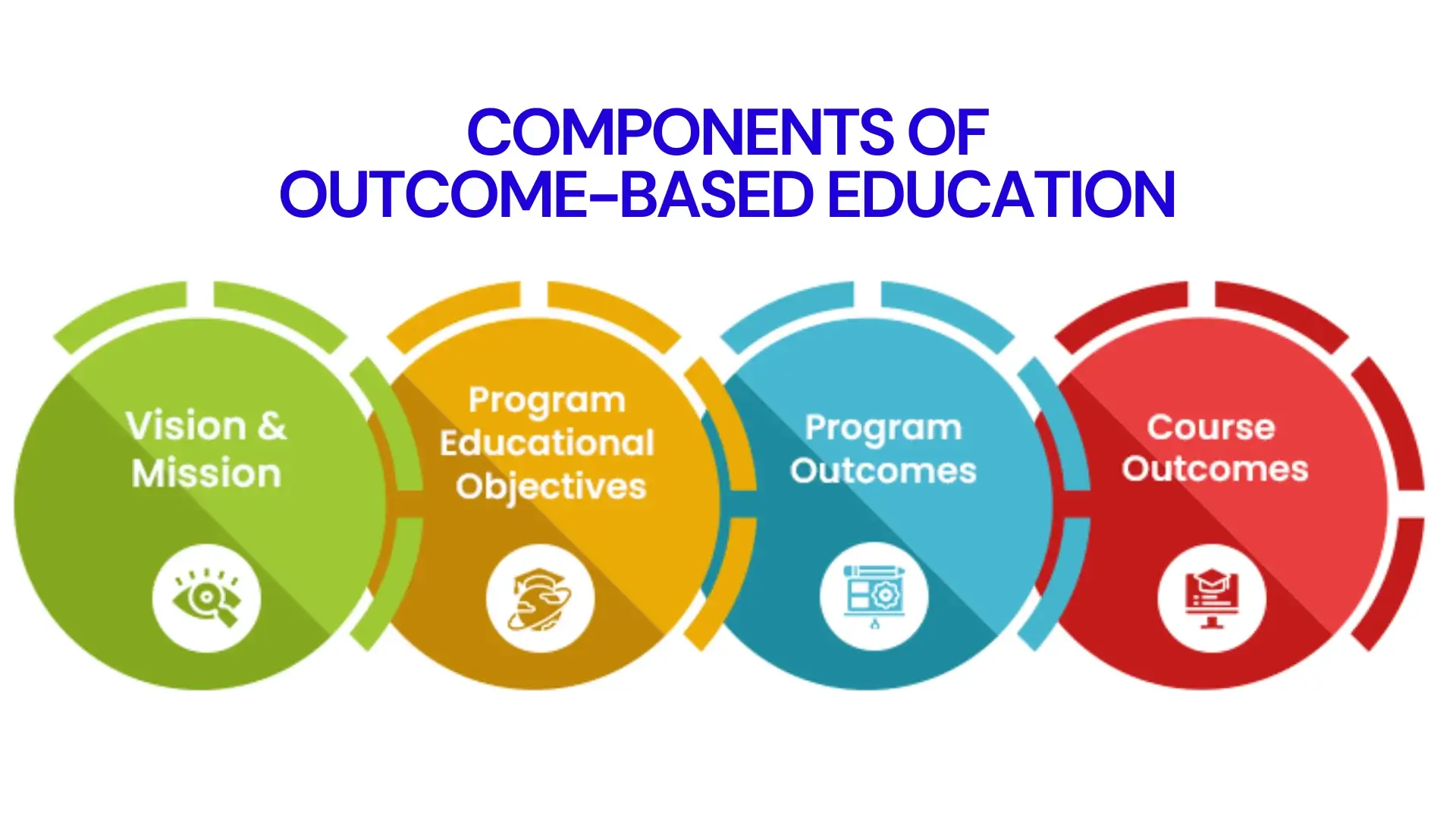
Update:This article was last updated on 21st October 2024 to reflect the accuracy and up-to-date information on the page.
There is a pressing need, as clear as daylight, to upgrade and transform the traditional education system. What is Outcome-Based Education? Unlike traditional education, which is just a predefined approach accepted by various cultures and communities across the world, outcome-based education (OBE) reflects a system that focuses on measuring the actual skills and competencies students acquire. The traditional system, while valuable in many ways, can be limiting. It is highly dependent on theoretical learning, often confining students’ potential with its focus on memorization rather than skill development. There are limited opportunities for children to develop new skills, which may be beneficial for the future-forward market. In the traditional education system, teachers are more inclined to finish a curriculum within a given timeframe while hardly underlining the importance of innovation. Teachers in this system are more inclined to finish a curriculum within a given timeframe, often neglecting innovation.
On the contrary, the OBE system is widely adopted by institutions across the globe. Educators are increasingly interested in outcome-based education software, which helps institutions measure learning outcomes and facilitates students’ development of new, globally competitive skills. It also prepares children to stand neck-to-neck with their global counterparts by enabling students to develop new skills that are ready for the future. This aspect of OBE is particularly relevant in today’s globalized world, where students need to be prepared to compete on an international level. This raises education standards, allowing institutions to gain accreditation from esteemed bodies like the NBA (National Board of Accreditation) as they continuously improve over time.

What is Outcome-based Education?
Outcome-based education is a student-centered instruction model that primarily focuses on measuring student performance through outcomes. It begins with a direct provision of what students are to know, what they are to be able to do, and what attitudes or values they should be able to demonstrate. This shift in focus from the system to the individual student is a key aspect of OBE. It revolves around a systematic process focused on the trainee, ensuring they successfully acquire well-defined outcomes. This approach calls for careful planning, or an analytical phase, asking: What exactly does the trainee need to learn? What are the skills required to obtain the outcome? What knowledge and attitude must the trainee possess? What experience do they already have? With these details aligned with the educational bodies developing the material and possibly supported by outcome-based education software, the learning outcomes can be written effectively.
What Is a Traditional Education System?
Traditional education refers to the conventional methods of teaching and learning, such as a structured curriculum delivered in a classroom setting, with a teacher imparting knowledge to students through lectures, textbooks, and written exams. This approach to education is often linear and focused on memorization and regurgitation of information. Traditional education values discipline and expertise in math, science, and literature. However, critics argue that it can be rigid and impersonal and may only sometimes align with the needs and interests of individual learners. In contrast, newer approaches, such as outcome-based education, emphasize flexibility and personalized learning. Understanding outcome-based education involves recognizing how this model focuses on achieving specific learning outcomes rather than merely following a preset curriculum. Schools and educators can also use outcome-based education software to track and measure students’ progress more effectively.
Comparing Learning Approaches: Traditional vs Outcome-Based
| Aspect | Traditional Learning | Outcome-Based Learning |
|---|---|---|
| Focus | Focuses on content delivery and adherence to a fixed curriculum. | Emphasizes achieving specific outcomes or competencies. |
| Learning Approach | Typically teacher-centered, with the instructor as the authority. | Often student-centered, with learners taking more active roles. |
| Assessment | Primarily based on tests and grades measuring knowledge retention. | Assessment is focused on demonstrating mastery of specific skills or competencies. |
| Teaching Strategies | Often involves lectures, reading assignments, and class discussions. | Utilizes various teaching methods such as problem-based learning, projects, and simulations. |
| Lifelong Learning Focus | May not inherently foster a mindset of continuous learning. | Often promotes a mindset of lifelong learning and adaptability. |
What are the Reasons for Implementing Outcome-based Education?
In the age of globalization, where everything is changing at a rapid pace, it is essential to stay relevant in context to the demands of society. With technology’s massive upsurge, more and more skills are needed to thrive as an individual. Academic organizations must follow the requirement of generating graduates to deal with technological developments. Therefore, the transition from the traditional education system to a results-based education system has become an absolute necessity. However, the question remains, what is outcome-based education, and how is it beneficial with its learner-centric approach? Let’s explore the meaning of outcome-based education and highlight some important elements of this system. Additionally, the integration of outcome-based education software can streamline the process, helping institutions effectively track and measure students’ achievements.

1. Transparency
Clarity is a very crucial trait for teachers and students. It is extremely important to have a direct approach with clarity in each category and all levels. What is outcome-based education? It formulates a transparent expectation of the results.
By understanding the meaning of outcome-based education, learners can advance by knowing what they need to achieve, and teachers can clearly outline the competencies they want to demonstrate throughout the course. Utilizing outcome-based education software, a tool designed to track and measure students’ achievements, can further support this process, ensuring that both students and teachers have the tools they need to track and reach those goals.

2. Flexibility
The outcome-based approach is not dependent on a stagnant instructional methodology. Teachers are provided with the freedom to experiment and use any suitable methodology to bring out the best results. This adaptable approach enables educators to utilize outcome-based education software to track and enhance student progress.
Teachers can constitute their classes per the wishes of the students, reading transparently what needs to be done. Since outcome-based education’s meaning revolves around a student-centered ideology, teachers are also able to acknowledge diversity with various assessment techniques. Study guides, cluster work, and seminars are some of the concepts instructors facilitate for the students to grasp and learn.

3. Analysis
With outcome-based education, instructors are constantly analyzing the accomplishments of a student and also highlighting areas of concern to provide individual assistance. This personalized support system helps both the institution and the students. What is outcome-based education?
Essentially, it is a student-centered approach that focuses on measuring student performance through clear objectives. It also helps teachers assess the evolution and growth of the student over a certain quantity and helps them achieve desired results. In recent times, many institutions have been implementing outcome-based education software to streamline this process. Understanding the outcome-based education meaning can help educators better tailor their methods to foster meaningful learning experiences and successful outcomes.

4. Participation
Student’s participation is an important element of outcome-based education, which involves systemic growth as well as individual growth. Outcome-based education empowers students, emphasizing that they take responsibility for their learning and attempt to fully understand the fabric. They do not look to blame their failures upon someone else, which eventually allows them to study fairly and learn inherently. Additionally, outcome-based education software can support this process by tracking progress and providing feedback to ensure that learning goals are met effectively.
As the demand for skilled professionals continues to rise, there is a rapid shift from a knowledge-based approach to a skill-based approach in education. This shift aims to upskill youngsters and prepare them for the future job market, where practical skills and expertise are increasingly valued over traditional academic knowledge. By focusing on skill development, what is outcome-based education becomes a critical question, as this approach emphasizes measurable outcomes over content mastery. Utilizing outcome-based education software can further enhance this transition, ensuring that students acquire the competencies that align with industry needs. Understanding the outcome-based education meaning helps illustrate how education can better meet the needs of evolving industries and equip students with the abilities they need to succeed in their careers.
Moonpreneur is on a mission to disrupt traditional education and future-proof the next generation with holistic learning solutions. Its Innovator Program is building tomorrow’s workforce by training students in AI/ML, Robotics, Coding, IoT, and Apps, enabling entrepreneurship through experiential learning.


















What is the difference between objective and outcome-based education?
Objective-based education outlines what an instructor, program, or institution intends to achieve, whereas outcome-based education articulates what a student can demonstrably and quantifiably accomplish following the completion of a learning experience.